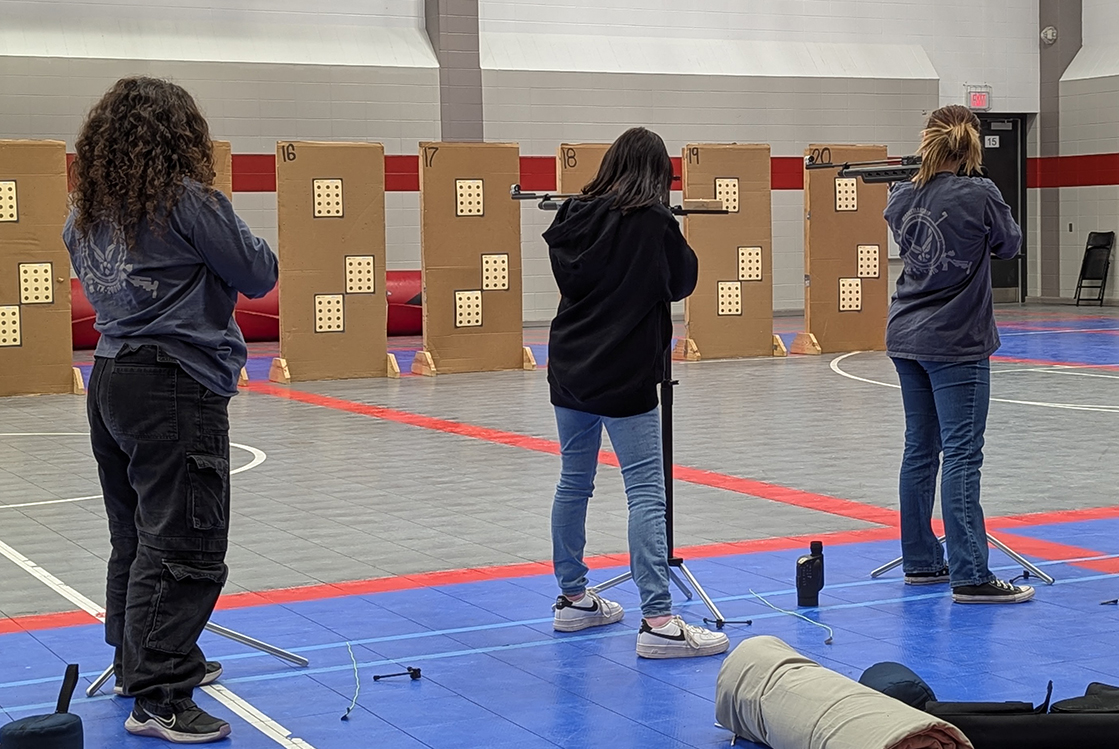Pencils racing, hands cramping, pens dispelling ink to a lined page. The overwhelming fear of messing up that no one cares to admit, the feeling of anxiety when the clock is counting down the seconds test takers have left to bubble in their answer sheets or put the last few words of their essays together. These are the thoughts and feelings students taking Advanced Placement (AP) tests know too well, whether it’s their first or their tenth test.
Bryan High AP Scholars
In May of 2015 students took the AP Exams, knowing that they’d have to wait another two months in anticipation for their scores. Fifty-five Bryan High students earned the distinction of being named an “AP Scholar”.
“Students achieving the distinction of AP Scholar is outstanding,” associate principal Megan Jones said, “The Administration knows that we have some of the best and brightest in Texas, and an AP Scholar distinction allows the rest of Bryan, Brazos County, and Texas to know it as well.”
Students achieve this distinction through their own hard work in conjunction, with teachers working to make sure that all of their students succeed in every way they can in class and on the test.
“I focus a lot on test taking strategies for the multiple choice and time management, because that’s a big issue,” AP English teacher Lisa Prejean said, “A lot of reading, a lot of writing is pretty much where the focus is.”
The majority of AP courses are offered to juniors and seniors, but last year AP Human Geography, was offered to freshmen and other students, had one of the highest scores in the Social Studies department.
“I heard that most of the time first year teachers and students don’t do as well [on the AP Human Geography test], and that to me was unacceptable, and I didn’t want that.” AP Human Geography teacher Patricia Bailey-Jones said, “That’s why I put in so many hours, because I wanted to make sure I was covering everything.”
State changes AP score acceptance
Although the title of AP Scholar is impressive, many students are more concerned about earning college credit for their courses. Texas officials recently leveled the playing field for AP courses by having all post-secondary school accept a score of three or higher though university administrators still have the flexibility to alter requirements for certain majors.
“I think it will be good to have a uniform standard for schools,” Prejean said. “I think that the work they do [in an AP class] is just as difficult as what’s done in a three hour college course, so I think they deserve credit. The AP test is fairly rigorous. It’s a one day, one shot deal, and if they perform well that one day, I think they’ve proven [themselves].”
Other teachers also see the benefits of having colleges accept a score of three because they believe the work a student does within their course is sufficiently equivalent to many college courses.
“High school kids put in a lot of work, and effort,” Baily-Jones said, “I think a little more work and effort than even at the collegiate level, for introductory courses,”
Students, having experienced AP courses, AP tests, and college classes also see the benefit of the change.
“I think that accepting threes on AP test is definitely a good thing,” 2014 BHS graduate and current University of Texas student Emily Nash said, “I took AP history in high school and made an A in the class, but a three on the AP test and my university didn’t accept that three so now I have to take two more semesters of history.”
With the climbing costs of postsecondary education and an emphasis, Nash believes this move could help with both.
“It’s kind of frustrating because that is money I could’ve saved and history doesn’t have anything to do with my major, and I could’ve taken a more relevant class for something I am more interested in,” Nash said, “It does make college more affordable for students who can get those AP courses out of the way.”
AP scores do not directly correlate to a grade and are taken just like transfer classes
“Additionally AP tests are really difficult and if, like me, students are bad at taking tests, it doesn’t reflect how smart they are or how well they did in the class,” Nash said, “The AP test is a lot more difficult than an introductory course in college,”
While the changes to the acceptance of scores may impact the number of students willing to attempt the courses and the test, Bailey Jones believes the number of students involved in AP courses could be directly impacted by how the course material is delivered.
“I think AP teachers have to do a better job of not only making the content more interesting to learn, but do it in a way that does not overly kill or stress the child, because this is supposed to be a college level course and so much work could be left to the student in some instances, and I think trying to find more interactive activities to do, to teach the material. Despite the fact that it’s college level,” Bailey-Jones said, “I think a lot of AP courses at the college level get stuck in this lecture mode. I don’t think that it’s necessarily the best mode for teaching high school AP.”





